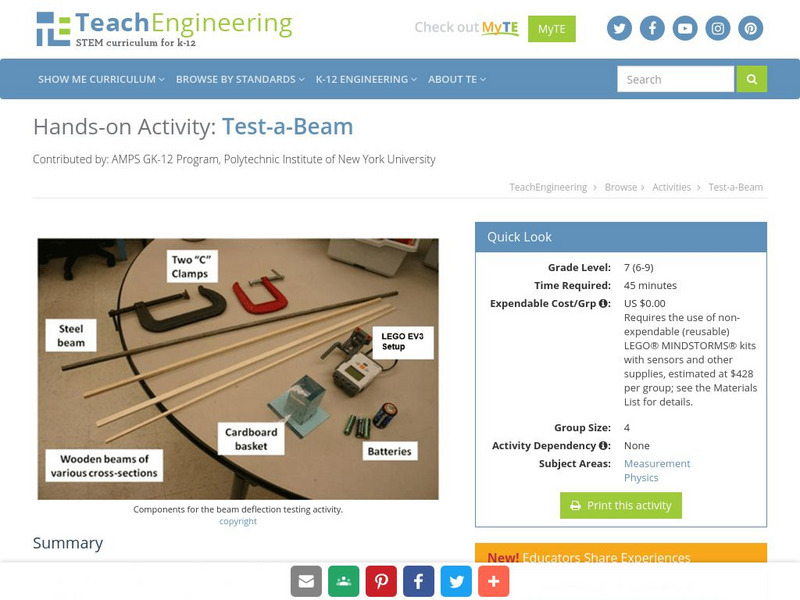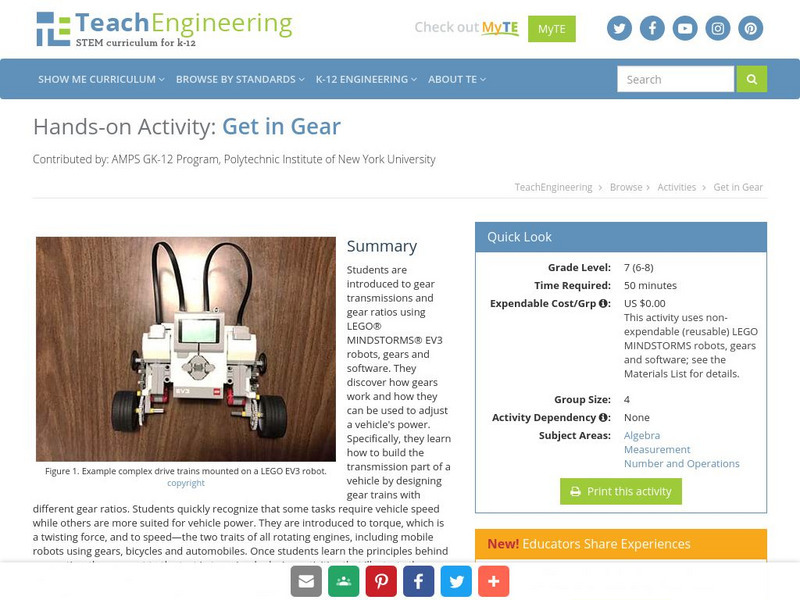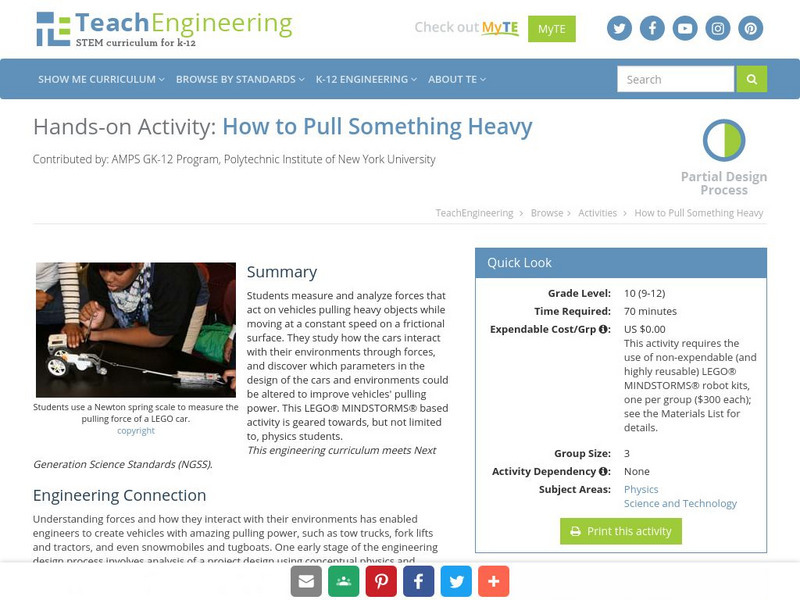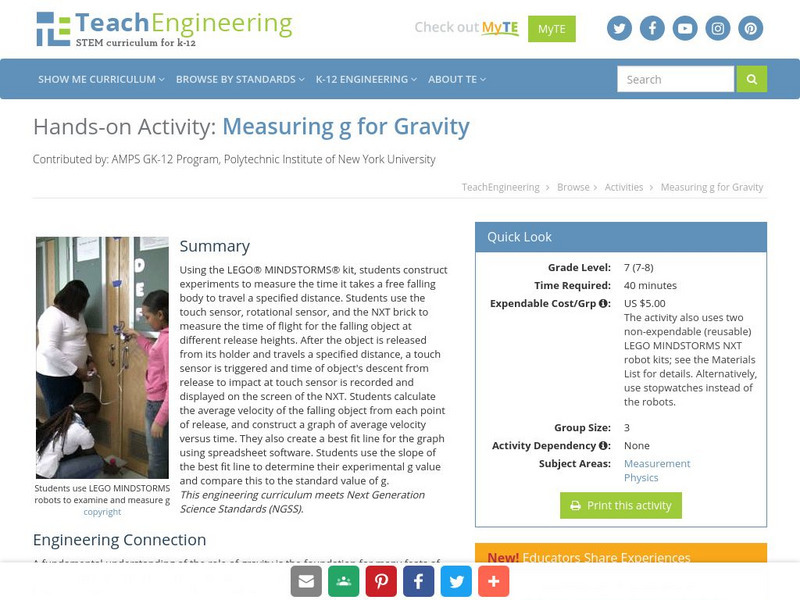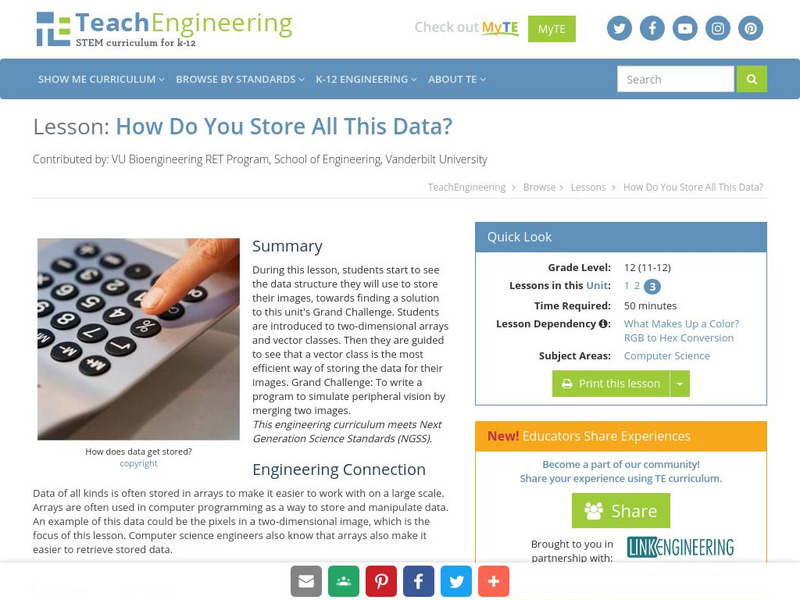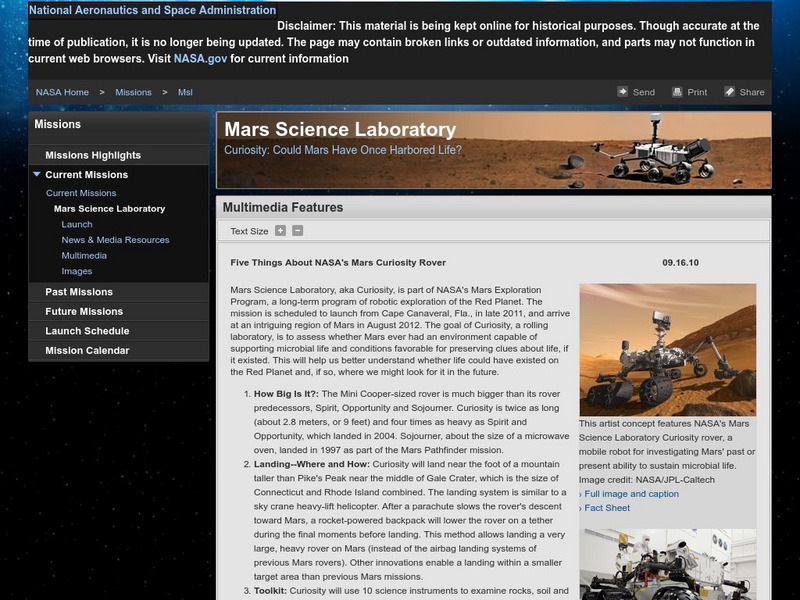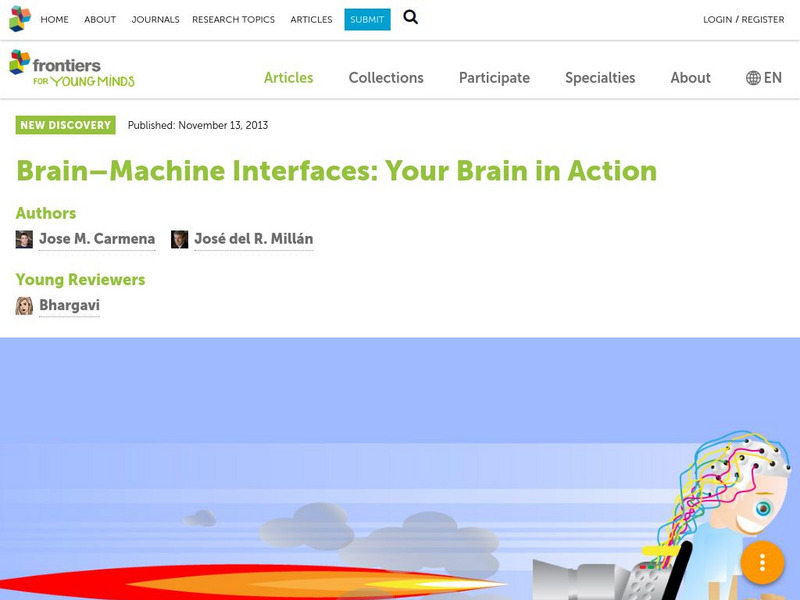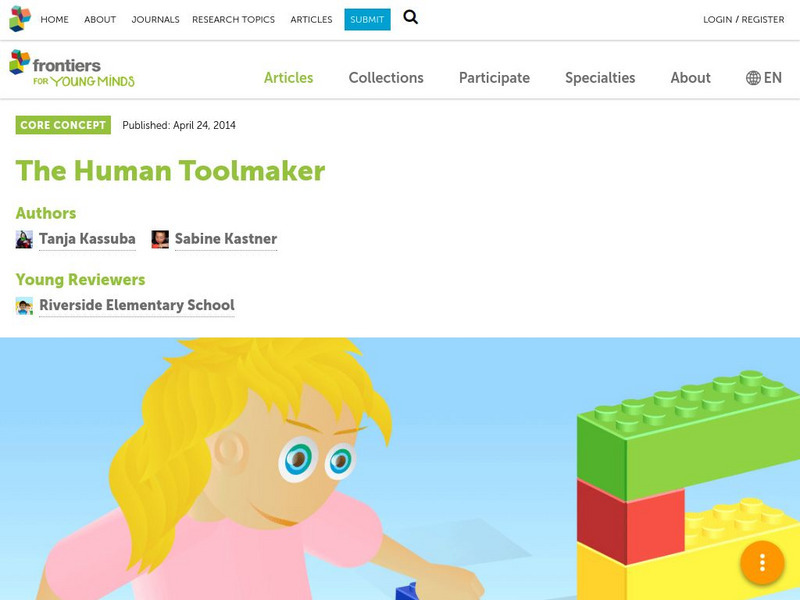Hi, what do you want to do?
TeachEngineering
Teach Engineering: Test a Beam
Students measure different types of small-sized beams and calculate their respective moments of inertia. They compare their calculations to how much the beams bend when loads are placed on them, gaining insight into the ideal geometry...
TeachEngineering
Teach Engineering: Get in Gear
Students discover how gears work and how they can be used to adjust a vehicle's power. Specifically, they learn how to build the transmission part of a vehicle by designing gear trains with different gear ratios.
TeachEngineering
Teach Engineering: How to Pull Something Heavy
Students measure and analyze forces that act on vehicles pulling heavy objects while moving at a constant speed on a frictional surface. They study how the cars interact with their environments through forces, and discover which...
TeachEngineering
Teach Engineering: Measuring G
Using the LEGO MINDSTORMS NXT kit, students construct experiments to measure the time it takes a free falling body to travel a specified distance. Students use the touch sensor, rotational sensor, and the NXT brick to measure the time of...
TeachEngineering
Teach Engineering: Measuring Pressure
Students learn first-hand the relationship between force, area and pressure. They use a force sensor built from a LEGO MINDSTORMS NXT kit to measure the force required to break through a paper napkin. An interchangeable top at the end of...
TeachEngineering
Teach Engineering: Measuring Distance With Sound Waves
Students learn about sound waves and use them to measure distances between objects. They explore how engineers incorporate ultrasound waves into medical sonogram devices and ocean sonar equipment. Students learn about properties, sources...
TeachEngineering
Teach Engineering: How Do You Store All This Data?
During this lesson, students start to see the data structure they will use to store their images, towards finding a solution to this unit's Grand Challenge. Students are introduced to two-dimensional arrays and vector classes. Then they...
NASA
Nasa Human Research Program: 21st Century Explorer
This NASA research program allows students to explore space topics using science, technology, engineering, and mathematics skills. Find twelve themes to investigate through video, song, and animation. Also find links to other NASA projects.
TeachEngineering
Teach Engineering: The Claw
Students learn about gear ratios and power by operating toy mechanical cranes of differing gear ratios. They attempt to pick up objects with various masses to witness how much power must be applied to the system to oppose the force of...
Other
Youth Time Magazine: The Impact of Technology on the Future of Work
An interview with David Timis who studies the impact of artificial intelligence on the future of work. He discusses how youth can prepare themselves. Includes a 30-minute video. (Published August 30, 2020)
Khan Academy
Khan Academy: Start Here! Counting
This lesson focuses on the math needed to solve problems counting. In the first lesson you learned that it was possible to build 1000 possible robots using only a handful of parts. Now suppose the director only asks for a cast of 6...
NASA
Nasa: Learn About Me: Curiosity
Learn about the robot that is exploring Mars to see if the planet could supported microbes with this interactive site. Students investigate the parts of the robot by clicking and rotating a picture of the rover.
NASA
Nasa : Five Things About Nasa's Mars Curiosity Rover
Information about the Mars Curiosity Rover, a movable robotic laboratory designed to explore the surface of Mars.
AdLit
Ad lit.org: Reading Discussion Guide: Bloomability by Sharon Creech
Bloomability, by Newbery medalist Sharon Creech, tells the coming-of-age tale of Dinnie, a thirteen-year-old girl uprooted from her parents' nomadic lifestyle to spend a year in Switzerland. Dinnie is used to change, since her whole life...
Shodor Education Foundation
Shodor Interactivate: Simple Maze Game
Use this clever applet to move your robot to safe ordered pairs as it travels to its destination. This all takes place in the first quadrant. Direction are just a click away.
PBS
Pbs Kids: Curious George: Build a Bot
Use your engineering skills to help build a robot with Curious George and equip it with the correct accessories for different tasks.
TED Talks
Ted: Ted Ed: The Operating System of Life
Cells are almost like tiny factories run by robots, with the nucleus, DNA, proteins, lipids, and vitamins and minerals all playing critical roles. George Zaidan and Charles Morton lay out the blueprint of a cell and explain how...
TED Talks
Ted: Ted Ed: Can Machines Read Your Emotions?
Computers can beat us in board games, transcribe speech, and instantly identify almost any object. But will future robots go further by learning to figure out what we're feeling? Kostas Karpouzis imagines a future where machines and the...
TED Talks
Ted: Ted Ed: Making a Car for Blind Drivers
Using robotics, laser rangefinders, GPS and smart feedback tools, Dennis Hong is building a car for drivers who are blind. It's not a "self-driving" car, he's careful to note, but a car in which a non-sighted driver can determine speed,...
Frontiers Media
Frontiers: Brain Machine Interfaces: Your Brain in Action
Brain-machine interfaces (BMI), or brain-computer interfaces (BCI), is an exciting multidisciplinary field that has grown tremendously during the last decade. In a nutshell, BMI is about transforming thought into action and sensation...
Frontiers Media
Frontiers: Human Toolmaker
Do you enjoy building airplanes, cars, houses, or robots with Lego blocks? Humans are the only animal species that can create complicated constructions from simple Lego blocks - our Lego building ability is "human-specific," since it is...
Mangahigh
Mangahigh: A Tangled Web: Angles, From Basic Rules to Circle Theorems
For this game, you must solve tricky angle problems as you help Itzi the robotic spider find a way through a maze of tangled webs, to rescue his family and then get back to his home. Includes a helpful tutorial.
NASA
Nasa: Follow Your Curiosity: How Do I Land?
Understand each step as the Curiosity landed with this animation. The animation shows the entry, descent, and landing of the robot on Mars.
Sophia Learning
Sophia: Strong Verbs
This tutorial focuses on replacing weak verbs with strong verbs in writing. It offers a video of robots Peter and Lucy discussing his need to fix the weak verbs in his writing. This information is summarized in a slideshow that follows:...
Other popular searches
- Nasa Robots
- I Robot
- Lego Robotics
- Planet of the Robots
- Lejos Robot
- Robotic Technology
- Boolean Algebra in Robotics
- Lego Robots
- I Robot the Movie
- Making Robots
- Robots in Space
- Robotics Worksheets





